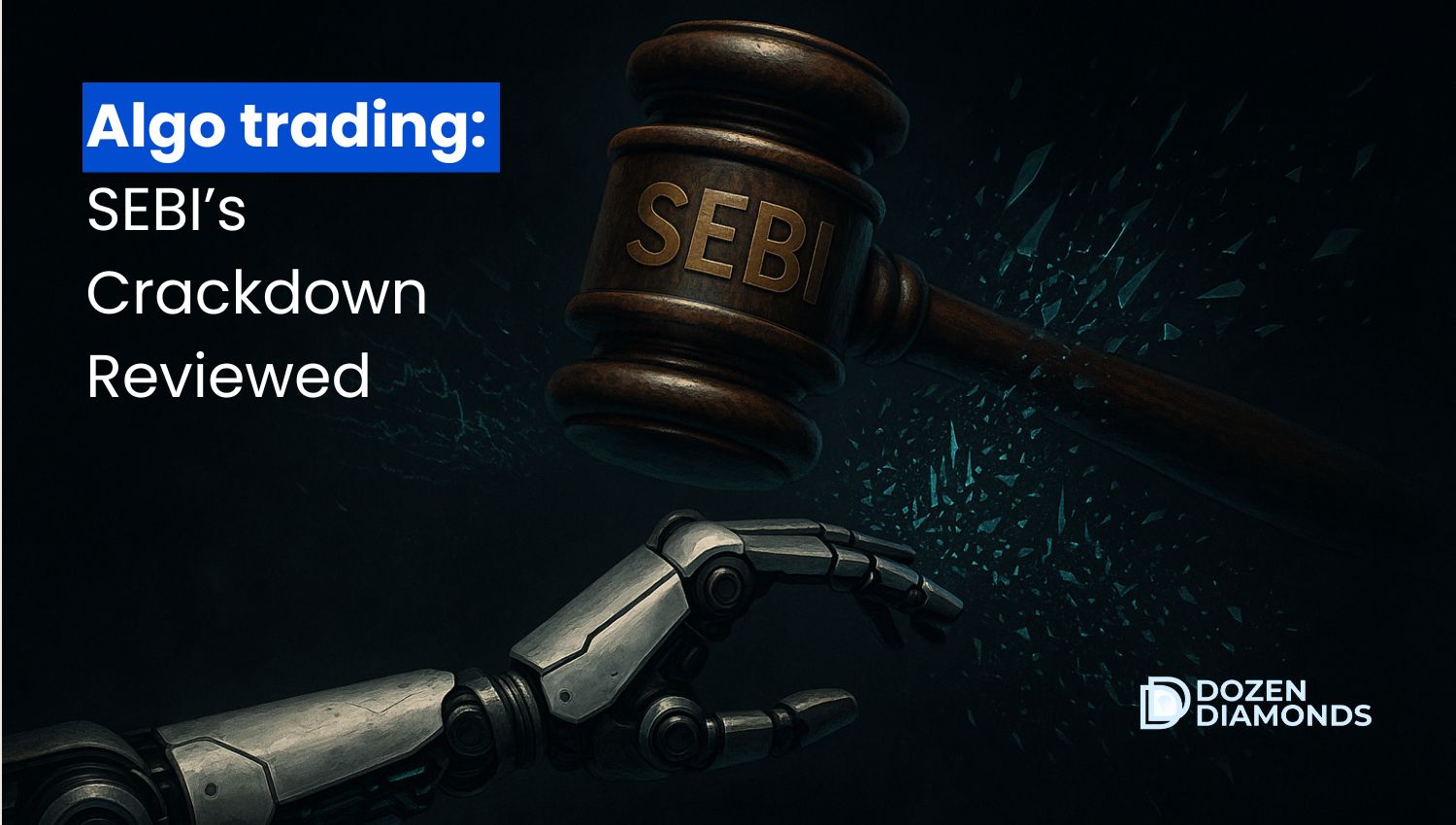Algo trading: SEBI’s Crackdown Reviewed

Table of Contents
Introduction
You’ll discover:
- How unique order IDs and API rules enhance traceability
- The limits of enforcement and what SEBI lacks
- How India’s approach compares with SEC/ESMA standards
What You’ll Learn
Benefit from:
- Clear compliance checklist
- Real enforcement metrics
- Global best-practice alignment
Three Key Benefits
- Spot compliance red flags—unique IDs, API restrictions, and spoofing deterrents.
- Understand SEBI’s limitations—enforcement delays, agency overlaps, and tech gaps.
- Benchmark your setup against SEC/CFTC/ESMA and exchange-level rules.
What Is algo trading?
Algo trading refers to automated, rule-based trading executed by software without human intervention.
It drives the vast majority of derivatives volume and enables both efficiency and, at times, market distortion.
SEBI’s Crackdown Explained
Why It Matters
- Over ₹1.05 lakh crore of retail losses in FY25 spotlighted the issue
Source: The Economic Times
- SEBI’s interim ban on Jane Street for alleged index manipulation shows the regulator’s intent . Source: Reuters
Core Circular Measures
- Unique Order IDs: Each algorithmic order now traceable to user.
- API Controls: Eliminated open APIs—key-based and OAuth only.
- Algorithm Registration: Mandatory if orders/second exceed exchange thresholds.
- White-Box vs Black-Box: White-box is transparent; black-box requires RA licensing & reporting.
Regulatory Gaps & Enforcement Constraints
- SEBI lacks dedicated enforcement teams, delaying interventions by years.
- Overlapping jurisdiction with CCI, RBI, ED—fragments oversight and slows resolution.
- No advanced real-time surveillance equivalent to MIDAS or Regulation SCI—India still building RegTech capacity.
Global Comparisons
- SEC/CFTC (USA) mandate pre-trade risk checks and system compliance (Reg SCI, Rule 15c3-5).
- ESMA (EU) enforces algo thresholds and transparency via MiFID II.
- India’s measures echo these but lag in tech implementation, relying on circulars rather than statutes.
Next-Step Call to Action
Download the Kosh app to experience stressless algo trading
❓ FAQs on Algo Trading
The new rules stem from growing retail losses—over ₹1.05 lakh crore in FY25—and manipulation cases like Jane Street’s index trades. SEBI’s goal is to make every algorithm traceable and accountable through unique order IDs, API restrictions, and mandatory algo registration.
The 2025 circulars require:
- Unique Order IDs linked to individual users
- API controls (open APIs banned; only key-based or OAuth allowed)
- Algorithm registration once execution frequency crosses defined limits
- Disclosure of algo logic type—White-box or Black-box
Failure to comply could lead to penalties or suspension of trading APIs.
Each order is now traceable to its source, making spoofing or manipulation easier to detect.
API restrictions prevent unauthorized trading bots, and registration ensures exchange-level oversight of every approved algorithm.
India’s measures echo SEC’s Reg SCI (US) and ESMA’s MiFID II (EU), which enforce transparency and pre-trade risk checks.
However, India still depends on circulars, not full legislation, and lacks real-time surveillance systems like MIDAS—leaving gaps in swift enforcement.
Traders can use white-box algo platforms like the Kosh app, which ensure:
- SEBI-compliant API usage
- Registered algorithm logic
- Full transparency and traceability
This helps traders automate safely while maintaining regulatory compliance and emotional peace.
